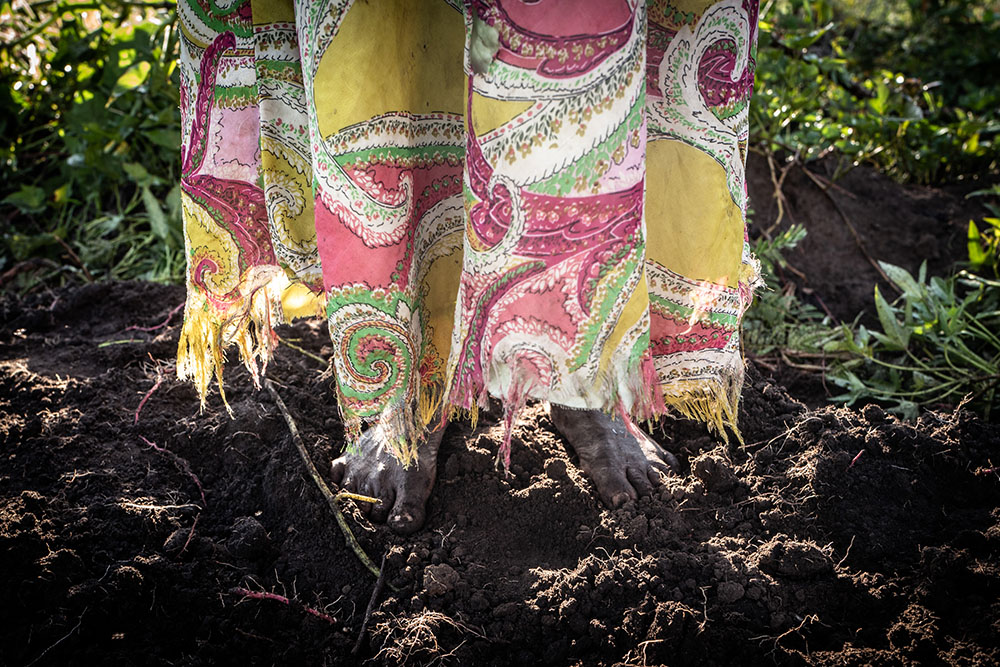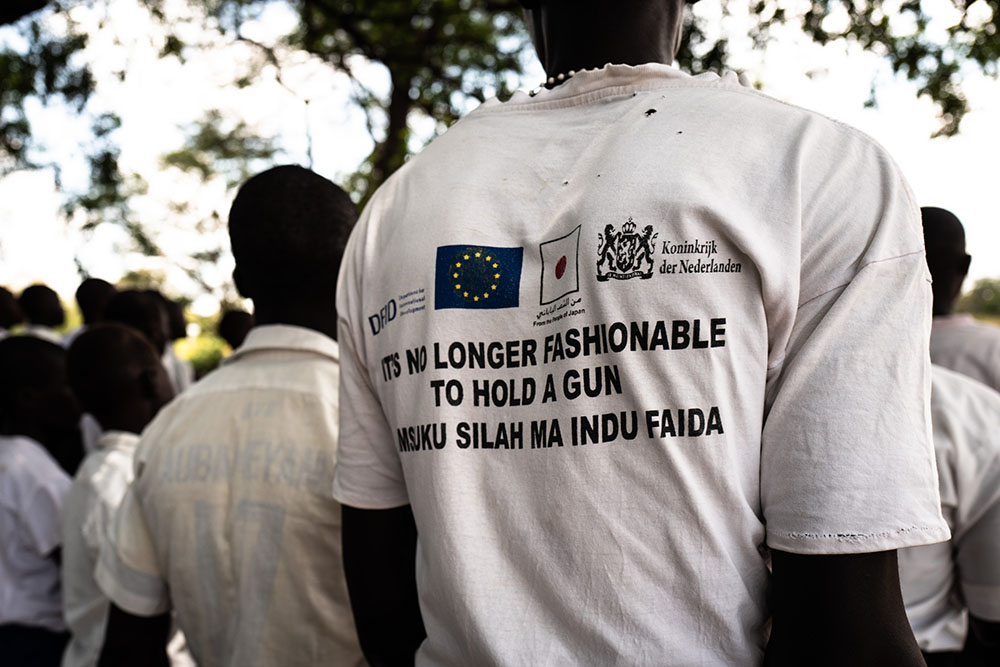South Sudan is the youngest country in the world. It was only in 2011 it gained independence from the Republic of the Sudan. Coming out of over 20 years of conflict, the peace that followed independence was celebrated by all and there was hope of a brighter future. Unfortunately, peace did not last long. A brutal civil war has raged since 2013 – 400,000 people are estimated to have been killed and more than 4 million displaced. Over 1 million have crossed the border into Northern Uganda, many coming to the communities where African Women Rising is working.
Uganda is currently hosting the highest number of refugees in the country’s history, and is receiving simultaneous emergency influxes from South Sudan, DRC and Burundi. Refugees report fleeing primarily out of fear of being killed by fighters from either side of the conflict inside South Sudan. Other reasons for this forced migration include hunger and lack of social services. According to UNICEF, Uganda is host to the fastest growing refugee crisis in the world.
Key amongst the challenges faced by the newly arrived refugees is access to food. Due to lack of resources, UNHCR (United Nations High Commissioner for Refugees) has limited rations per individual and cannot guarantee long term adequate quantities of the required food for the refugees. The influx of the refugees into the northern district of Lamwo has increased the shortage of foodstuffs within the local community and if not addressed could spark further tensions between the host and refugee communities. At present there are more than 40,000 refugees in Palabek refugee settlement (Jan 2019).
Host communities, agencies and the local authorities have highlighted environment protection as a key gap in Palabek settlement. On top of its impact on future resilience of the community, environmental degradation is also becoming a driver to create conflict between the hosts and refugees. There are many factors contributing to this, though the main ones are cutting of trees for firewood and building materials, loss of topsoil to brick making and construction and the impact of massive extraction of ground water. Given the rapidly declining environmental and ecological health of Northern Uganda, any response to help meet the growing food security needs of refugees and host communities needs to be based on clear soil fertility and water conservation principles and practices.


Another related challenge is the lack of access to agricultural land. In conjunction with the Ugandan Office of the Prime Minister (OPM), refugees have been allocated 30 x 30 meter plots of land on which they are expected to grow a sizable portion of the food for their families. The small amount of land is further compounded by the unpredictable changes in the climate and weather patterns within the district. Rains have become more erratic and unevenly distributed throughout the growing season. Environmental issues are already a major concern in all refugee hosting areas.
Despite land shortage, there is high demand for agricultural inputs among the refugee communities who would like to supplement relief food with crop production on the small plots they have. However, there has been limited support in this respect. Some refugee families, coming from the Nuer and Dinka tribes in particular, need significant agricultural training as they have limited farming experience. In this context humanitarian partners are identifying people that require special assistance. So far, only 6% of identified people with disability have received assistance relevant to their needs while there is also a gap to address special needs of 30% of elderly in the settlement.


It is a complex situation. AWR is working in partnership with the office of the Prime minister, the UN and other implementing organizations to provide support to the refugee population. We provide the same kind of services as we do in the communities. In 2019, our work in Palabek settlement camp includes Permagarden trainings for at least 2,000 households, Girls Education program for 750 girls, 6 adult literacy centers and 10 micro finance groups (300 women).
PHOTO GALLERY
Awich nursery and primary school has over 3,700 students and only 19 teachers. Before AWR started working with the school there were very few text books, one exercise book per student for 6 subjects and no pencils. It’s hard to learn to write without a pencil. AWR provides learning materials to all students at 2 schools in the camp and extra attention to 750 girls. All girls who are old enough to have their period receives reusable menstrual pads.
“My name is Nyangem Chol, I am 40 years old and have 4 children. My husband was killed in South Sudan, he was a soldier. I came here because of hunger, there was no food for the children, and I wanted to make sure they could go to school. They (AWR) helped me start this garden and gave me seeds and a hoe. The children have started eating again, I can even sell some to buy soap to wash them and clothes.”
“I came to this refugee camp because of the war in South Sudan. Men entered my village and killed people so I fled with the children. I have 7, one died. I want my children to go to school and want to go back home to South Sudan.” Yar, 30 years old.
Camillo is 12 years old. He lives in block 10 in Palabek Refugee Settlement camp. He and his foud brothers and one sister live alone. The oldest sibling, a brother, is 17 years old. Both parents were killed in South Sudan.
Uganda has one of the more liberal refugee policies in the world, though life as a refugee here is not easy. Each family is given a 30×30 meter plot of land where they are expected to build a home and grow food to eat. Families receive 6 poles and a tarp for construction materials to build a shelter, a jerry can to carry water, a cooking pot and blankets.
“I left South Sudan because of all the problems, there is hunger and my village was attacked. Two neighbors were killed so I ran. I walked for 2 days with a baby and my husband. My newborn is 3 days old. Life is better here, we are safe, have food and cooking oil. I take care of 2 orphans who came here without any adults. AWR helped me start a Permagarden, it provides us with fresh food, vegetables. I can even sell some to earn money. I finished 7th grade but can’t read very well so I am a student at the adult literacy center.” Agnes
AWR have 6 adult literacy centers in the camp. South sudan has one of the highest levels of illiteracy in the world. Only 30% of adult over 15 years of age are literate. For women the situation is even bleaker, only 20% know how to read and write.
Mary was a mobile money agent in South Sudan, she earned enough and life was good. The civil war changed everything, and she had to flee with her 3 children. She gave birth to 5 children but lost 2. Today Mary is living in Palabek Settlement camp, she is also one of many refugees employed by AWR. We seek to hire as many refugees as possible to run the literacy centers, help with the Permagarden program or work as mentors in the two schools where we have the Girls Education program.

